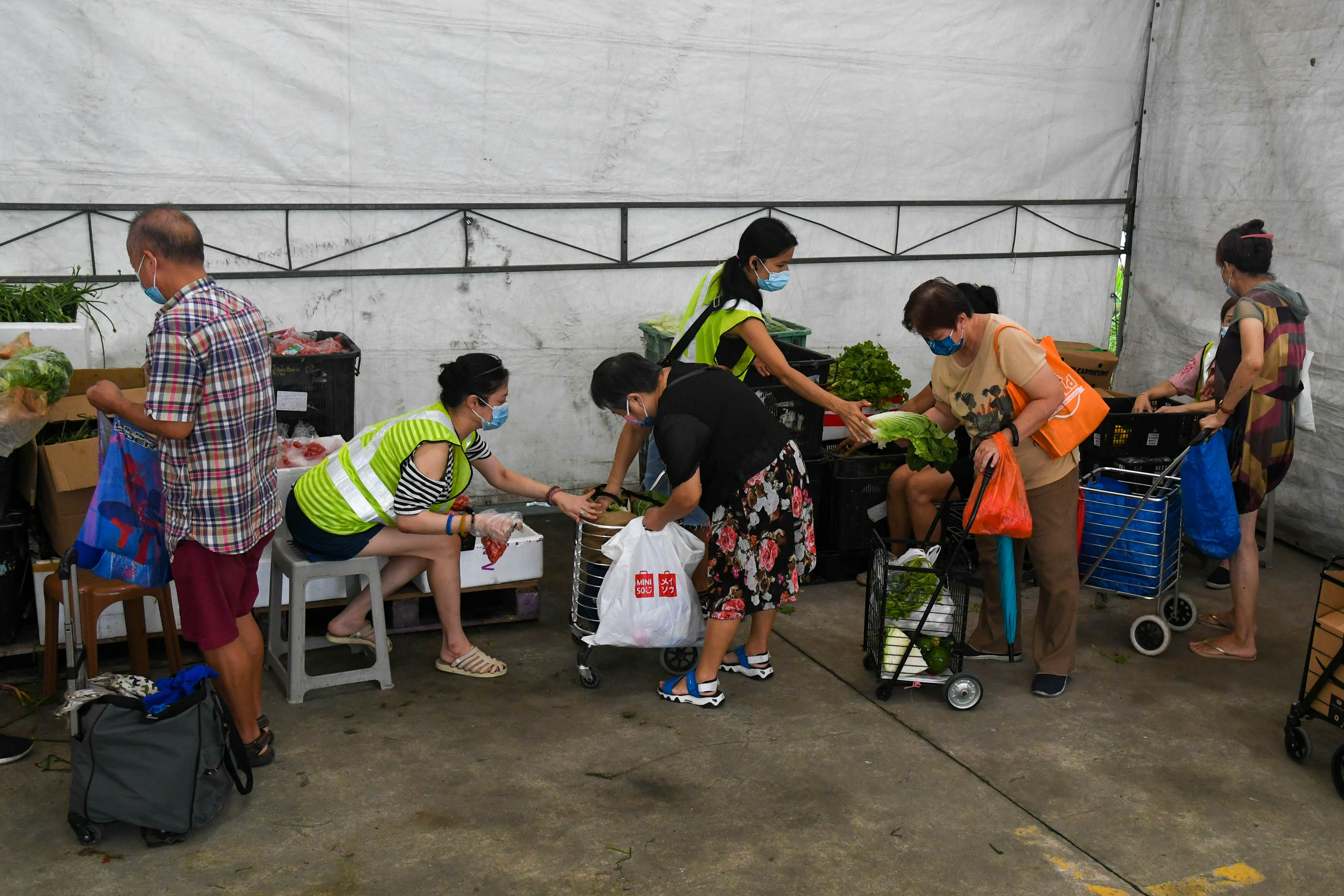Food rescue projects relying on more donations to cope with increased fuel, transport costs
Sign up now: Get ST's newsletters delivered to your inbox

Food rescuers said that the cost of running their initiatives has gone up due to the rise in petrol prices and transport rental.
PHOTO: ST FILE
SINGAPORE - Food rescue initiatives could be in need of a little rescue themselves, as they feel the strain from increased fuel and transport costs.
The rise in fuel prices has come as higher awareness of the projects has also led to an increase in shops and businesses giving away excess food, leading to greater transport needs. With more people knowing about them, the number of recipients has also gone up.
Food rescuers Fridge Restock Community SG, KampungBishan and Food Rescue Sengkang said that the cost of running their initiatives has gone up in the past year due to the rise in petrol prices and transport rental.
This has increased their reliance on donations to keep operations running.
KampungBishan is a community of people who share unwanted items, and rescue fruits and vegetables to be given away.
Mr Daniel Tay, 42, community projects director for KampungBishan, said the project initially did not cost much to run, but it has since been paying for van rentals, fuel, and parking.
He said it can cost up to $2,000 a month to run the operations if the project were to pay full price for everything, but it sometimes gets discounts as people know it is for charity work.
Mr Tay said the group felt the pinch of increased fuel costs after the Russia-Ukraine war broke out, and rescuing food now costs about 30 per cent more than it did last year.
He said: "From an ethical perspective, we feel that rescued food is obtained without charge and should be given away without charge."
"We always depend on donations from people we bring food to and our community members to cover our costs. Anything else that cannot be covered by donations comes from our own savings or income," he added.
Fridge Restock Community SG founder Daniel Yap, 44, said he makes use of trucks from his own personal business to transport food around, but the cost of doing that has increased by 50 per cent due to fuel prices.
He said: "We can't bear to collect funds from the recipients, however if they insist then we will accept because we want to continue helping the community."
Fridge Restock Community SG rescues an average of 6,000kg of food a week.
Mr Yap hopes more ground-up initiatives like his can get more corporate funding to continue operations so they can be less reliant on donations from the public.
Some food rescue projects like Food Rescue Sengkang are trying out approaches like imposing a $2 administrative fee for those getting food from their collection point in Thanggam, Sengkang.
This collection point is open to the public, while their other locations are targeted at the low-income community and have no fee.
Ms Cassandra Ho, 54, visits distribution points like the ones by Food Rescue Sengkang monthly to get rescued food. When the $2 fee was imposed, she said most people did not mind it.
The freelancer in the food and beverage industry said even before it was implemented, many people would donate a small amount of money each time they collected food anyway.
She said: "They needed help for logistics, big trucks and the cartons they use are not cheap. The food we get is definitely worth more than $20, the token donation is okay."
There could be greater scope for food rescue projects in Singapore, with the National Environment Agency recording a five-year high of 817,000 tonnes of food waste generated in 2021, about 23 per cent more than the 665,000 tonnes generated in 2020.


